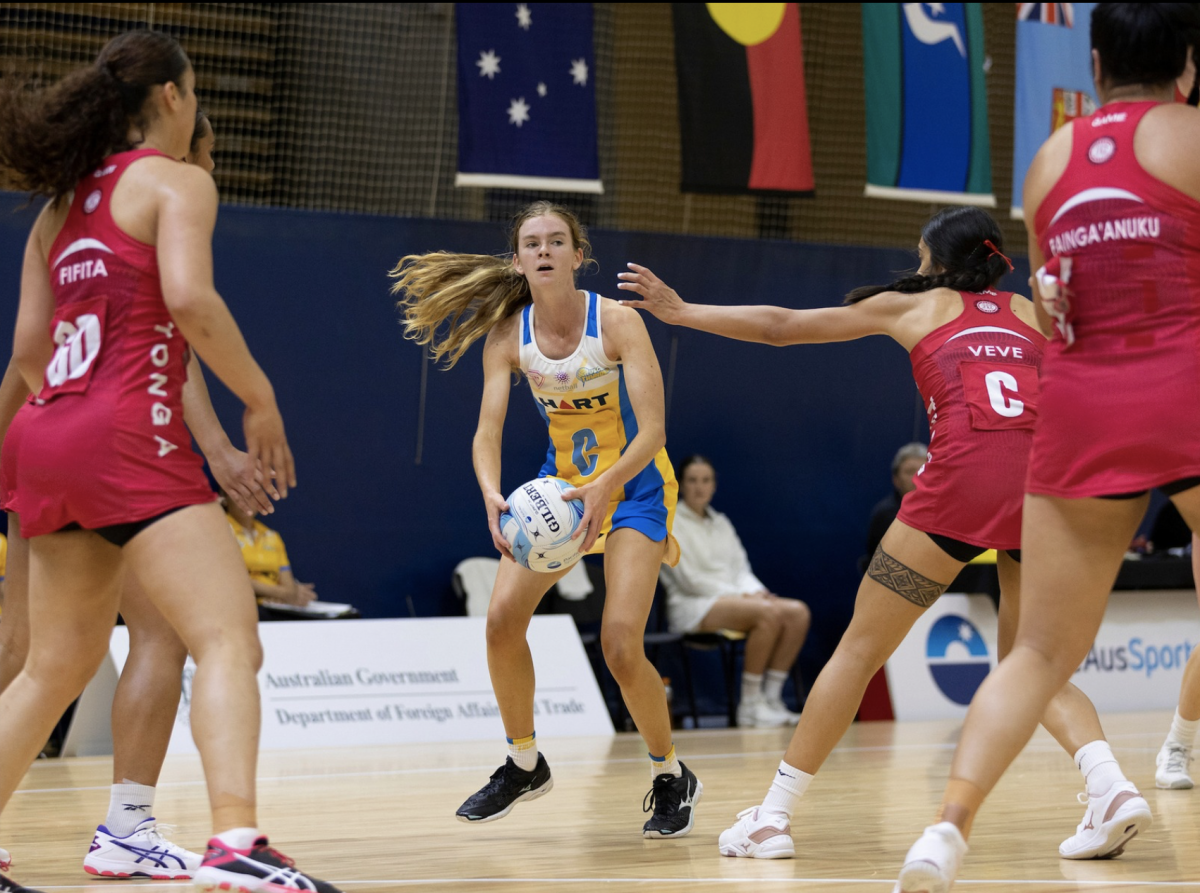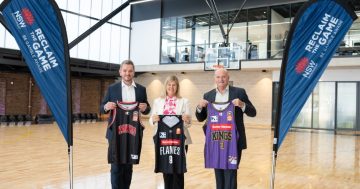
Should netballers have the right to refuse sponsorship deals? Photo: Netball Australia.
Will all those who have been saying sport and politics should not mix, and sportspeople should keep their mouths shut and just worry about their game be crowing after recent events?
Netball Australia has had a $15 million sponsorship withdrawn after players revolted against being associated with Hancock Prospecting.
It’s a big price to pay for taking a stand on principle, especially for a sport that could barely rub two coins together before Gina Rinehart came riding to its rescue.
So should sport and politics be intertwined?
In my formative years, it seemed the two were never far apart.
The Olympic boycotts of 1980 and 1984, the ostracisation of South African sport during the 70s and 80s, and the furore over Kerry Packer’s radical reshaping of Australian cricket were all subjects of fierce discussion in the Solly household.
Those same people who believe the job of sportspeople is to play sport also believe it’s the job of musicians to sing songs and play music, and they should stick to crooning about unrequited love and leave discussions about politics and international affairs to the people who allegedly know what they are talking about.
They also decry actors speaking out. I, for one, have no problem with any of the above. You can imagine in a lot of households around Australia last week, there would have been discussions about why a sports team would want to protest about receiving $15 million from a mining company, a discussion which otherwise might never have happened.
Sadly, many sportspeople and musicians have been bullied into keeping their opinions to themselves. Remember the days when Australian musicians like Midnight Oil, Paul Kelly and Redgum used to sing songs about issues of the day, songs which went on to become big hits?
Now the tendency seems to be to ridicule singers and bands who dare speak out. U2 copped a lot of “just shut up and sing about your girlfriends” when they released songs like ‘Sunday Bloody Sunday’ and ‘Pride’. The Cranberries were widely mocked for their song ‘Zombie’.
The Dixie Chicks were blacklisted by country radio stations all over America after they said publicly they were ashamed to be from the same state as President George W Bush and opposed the invasion of Iraq.
Pat Cummins, the very astute Australian cricket captain who strongly believes in standing up for what he believes in, is receiving very unfavourable commentary from some sections of the media for daring to speak out.
Former Wallabies captain and now ACT Senator David Pocock is another who never shirked away during his playing days from speaking his mind on issues other than who might win or who might play fullback in the next rugby test.
The Rugby Australia sponsorship deal with Santos came after Pocock’s career. If it had come earlier, you can be sure there would have been a confrontation.
Our leading sportspeople and musicians have a unique opportunity. Their views are often heard by and respected a lot more than the thoughts of our elected officials, and if that elevates a discussion some might consider uncomfortable into the public arena, surely that is a good thing.
But as we are seeing, taking on such a responsibility can carry a heavy price. They need skin as tough as a rhino. The social media pile-on, and the claims of “virtue-signalling” being pedalled by some sections of the media (and Ms Rinehart), will make life very difficult for those who feel the need to speak out.
And the athlete or singer who dares to become a player better be confident of their facts, or they will be chewed up and spat out by the court of public opinion.
Original Article published by Ross Solly on Riotact.








